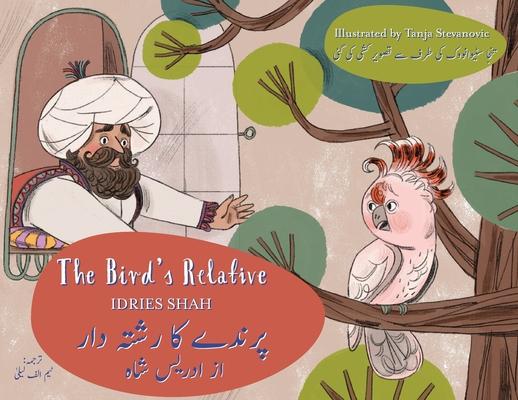(Bilingual English-Urdu edition) A wealthy merchant's prize possession is a beautiful bird. Believing that he loves the exotic creature too much to set it free, the merchant discovers that animals are sometimes better at learning by example than humans. This is one of a series of illustrated books for the young written by the Afghan philosopher and educator Idries Shah, whose collections of narratives and teaching stories have captivated the hearts and minds of people from all walks of life. It belongs to a rich storytelling tradition from Afghanistan, Central Asia and the Middle East that is more than 1,000 years old. These tales are more than entertaining; they are designed specifically to foster thinking skills and perception. They suggest in their structure and in the movement of their characters ways of looking at difficulties that can help solve them. Children will learn that it is good to observe others in order to learn, and that sometimes the actions of others are not all that they first seem to be.

The Bird's Relative: Bilingual English-Urdu Edition
(Bilingual English-Urdu edition) A wealthy merchant's prize possession is a beautiful bird. Believing that he loves the exotic creature too much to set it free, the merchant discovers that animals are sometimes better at learning by example than humans. This is one of a series of illustrated books for the young written by the Afghan philosopher and educator Idries Shah, whose collections of narratives and teaching stories have captivated the hearts and minds of people from all walks of life. It belongs to a rich storytelling tradition from Afghanistan, Central Asia and the Middle East that is more than 1,000 years old. These tales are more than entertaining; they are designed specifically to foster thinking skills and perception. They suggest in their structure and in the movement of their characters ways of looking at difficulties that can help solve them. Children will learn that it is good to observe others in order to learn, and that sometimes the actions of others are not all that they first seem to be.